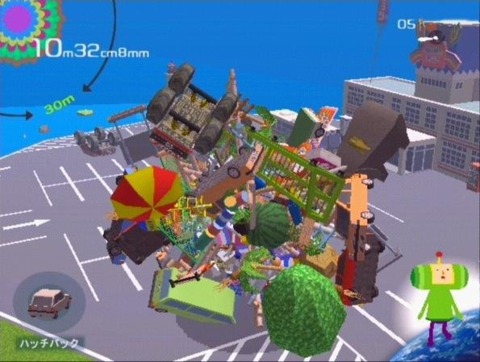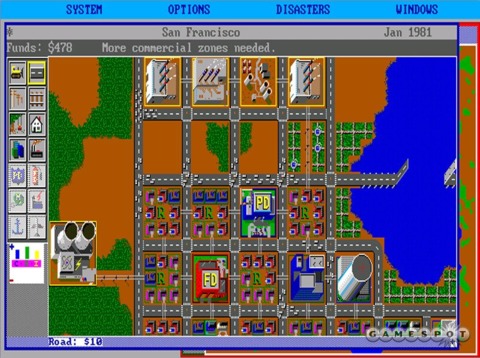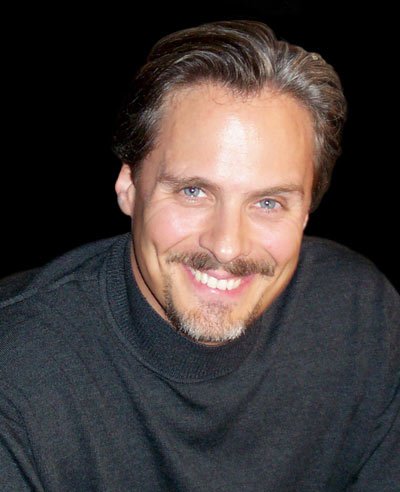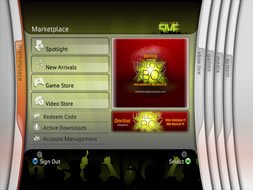Spot on: 'Here's the pitch...'
The rights and wrongs of how developers' ideas get turned into games, as dissected by David Jaffe, Ron Gilbert, Lorne Lanning, Will Wright, and more.
What do Katamari Damacy, SimCity, and God of War have in common? Besides being big hits for their respective publishers, they also had to overcome setbacks in the pitching process before earning their financial success and critical acclaim.
With the soaring cost of developing games on the latest generation of systems, publishers are forced to pick and choose their games wisely. The pitch is often the first step in a series of evaluations that eventually determines which games get released on shelves and which will never exist outside of a developer's imagination. Not all games need to be pitched (hit sequels and licensed tie-ins most notably), and there are ways around the process for enterprising or daring creators, but pitching is the most common way for developers to realize their original game ideas.
The pitch process can be a harrowing, grueling ordeal or a perfunctory rubber-stamp session, and there's no hard rule of thumb for determining which it will be for any given game. The three aforementioned games all proved to be big hits and spawned franchises for their respective publishers, but none were instantly apparent as home runs from the original pitch.

"Katamari Damacy was turned down once, the first time," creator Keita Takahashi told GameSpot. "That's the only game I've ever pitched that was turned down. I think the idea was rejected because it's hard to propose something brand-new; as a concept or a game or whatever, that's always going to be difficult. For Katamari especially, it looks so different from everything about a 'normal' title, so I think that was one of the key reasons."
Will Wright actually teamed up twice with Broderbund to publish his seminal metropolitan-management game SimCity. However, in the game's original incarnation on the Commodore 64, Wright couldn't get the publisher interested in SimCity's innovative open-ended structure amid a market stuffed with shoot-'em-ups.
According to Wright, "They kept saying, 'Where's the ending? When do you win or lose?' And they wanted to have an election where you got kicked out of office or not. And I was like, 'No, it's even more fun if you're doing it badly.' And they just parked it. They decided they weren't going to release it."

Years later, Wright and his new company, Maxis, went back to Broderbund with an updated version of the game and found them more accommodating, in part because the market for games with an older target audience had expanded.
It's not just innovative genre-busters that find difficulty in the pitching process. Former Sony Computer Entertainment America developer and Eat Sleep Play cofounder David Jaffe recalled that people within Sony that initially balked when he pitched his PlayStation 2 blockbuster God of War.
"With God of War, I was crazy passionate about it, and very few people liked it in the pitch form," Jaffe said. "There's a real desire among the powers that be at Sony that innovation is important. I'm just not that kind of designer. I don't care about innovation, I care about entertainment. The feedback I was getting is that this game isn't innovative. I was like, 'So what?' I wasn't a jerk about it, but wouldn't you rather have a game that entertains the crap out of people rather than one that checks off the tick box saying it's innovative?"
God of War went on to sell more than 1.8 million copies in the US alone according to the latest NPD Group figures, spawned a sequel, and became a franchise that Sony is currently extending to the PlayStation Portable and PlayStation 3. As Jaffe described it, the game was made only because his boss and his boss's boss at Sony had faith in him.

However, having a track record of success like Jaffe does--he also worked on Twisted Metal 1, 2, and Twisted Metal: Black--won't always get a developer's pitch approved. As an adventure-gaming icon whose resume includes cherished games such as Maniac Mansion and The Secret of Monkey Island, Ron Gilbert says his reputation means he can get a meeting with just about anybody, but it stops helping--and can even hurt his chances--once the pitch starts. At least, that's the experience he's had in pitching his latest project to roughly 15 different publishers over the last three-and-a-half years.
"One of the problems I've definitely had pitching stuff is that my name is so firmly associated with adventure games," Gilbert said. "You would mention the words 'adventure game' in a meeting and the meeting was over at that point. They just had no interest in anything that was adventure gaming at all. So even though a big chunk of the game is adventure game-like, I never said those words. I had to spend the first 15 or 20 minutes explaining that I'm not making an adventure game, and that was the beginning of every single meeting it seemed like."

Gilbert said 75 percent of the publishers would just turn him down outright, and even the pitch meetings that he said seemed to go really well wouldn't necessarily get him any closer to a publishing deal.
"If you walk out of a pitch meeting and everyone loves your idea, it's still going to get run up many flagpoles at the company," Gilbert said. "Marketing's going to have to buy into it, and there will be a financial analysis of the whole thing. They may love your game, but unless it is just blow-you-away revolutionary, they need to ask themselves how it fits into their product plans for two years down the road."
The reasons that Gilbert received for being turned down have varied. One publisher claimed that it had already been working on something very much like it. Years down the road, Gilbert still hasn't seen such a game from that publisher.
Another publisher actually found the project not costly enough. At one point, the proposed budget for the game was $4 million. The publisher's representatives turned down the project because they didn't believe it possible to make a hit game for that little money.
"What if I'd gone in and asked for $10 million," Gilbert wondered. "Would it suddenly have been OK? It's weird to me that the mindset of a publisher would be that they aren't spending enough money on it. It's also interesting to note that this publisher went out of business about a year and a half ago, so maybe it's not weird."

Although Gilbert is an industry veteran, he technically has never successfully pitched a game. When he worked at LucasArts, the game-creation process was so informal that ideas just became products on their own momentum, he said. Later on at the studios he founded, Humongous Entertainment and Cavedog Entertainment, Gilbert was running the show and didn't need anyone else's approval to get a game made.
Despite difficulties with his reputation for adventure games, fitting into a company's product plans, and not asking for enough money, Gilbert said the single biggest thing keeping his game from being made is the lack of an early prototype for the game.
"Right after that pitch meeting," Gilbert said, "the next thing out of their mouth is, 'Do you have a demo? Do you have a prototype?' And it's very hard, almost impossible, to go to the next phase unless you're prepared to put together a demo or a prototype. And I think that's really too bad, because there's a lot of people who just aren't in a position to do that. And publishers aren't willing to pay for that. They're not willing to put up $100,000 or even $50,000 to have a prototype made. I think if they spent a little more money early on to push projects through those earlier stages, they might get better products because they could cancel things if they weren't coming together in those first few months."
Gilbert's problem is not a new one. In 1994, Lorne Lanning cofounded Oddworld Inhabitants with the goal of building a new brand in the world of games, and maintaining ownership of the intellectual property. He knew he had to have a demo of his first game, Oddworld: Abe's Oddysee for the original PlayStation, before any publisher would consider signing on while letting him own the brand.

Lanning found the money for the demo from the world of venture capitalism. The metaphorical multimedia merger of Hollywood and games was generating a lot of buzz at the time, and Lanning said his expertise with 3D graphics as a director and supervisor at the Academy Award-winning Rhythm & Hues visual-effects studio made the fundraising relatively painless.
"If we just went to publishers with an idea, they probably never would have bought it," Lanning said. "That's why we didn't go to publishers first; we went to venture capitalists, and then we built a functioning prototype that looked like the finished game. So I could play that first level, and that spoke for the rest of the game."
Lanning sold a piece of the company to a venture capitalist to raise funds early on, and then bought it back once Abe's Oddysee was on track. Lanning had his demo and the IP, and the investor turned a healthy profit in the process. Unfortunately, Lanning thinks venture capital simply isn't an option for modern startups in the current game-development climate, with few exceptions.
"Console gaming's a losing business for everybody but publishers and big retailers," Lanning said. "No VC's going to look at the console business, because they think it's a broken model as well."

Two years ago, Lanning closed the Oddworld Inhabitants studio and shifted it to a production company in preparation of his next project, the upcoming game and film Citizen Siege. He said Electronic Arts wanted to fund the project with a significant amount of money, but insisted on owning the intellectual property. Much as he did a decade ago, Lanning came up with another unorthodox way to get the project made and maintain his ownership. He went out and found funding for the movie first; partners in the film industry were more willing to let him keep control of the brand.
"Now we could go back to publishers with the same game," Lanning said, "but now that there's a movie attached to it with a marketing commitment already behind it, all of a sudden the terms can completely turn over. They've completely changed. Now they want to ride the back of that, because the publisher feels it will see a certain amount of predictable sales as long as it's a quality product."
Developers are not alone in lamenting the difficulty of funding a prototype for a game. As a senior producer at SCEA Santa Monica focusing on external design and development, Rusty Buchert hears a lot of pitches. He has seen the benefits and drawbacks to the process, but the biggest change he'd like to see, much like Gilbert, would be more resources for developers to create functional prototypes for their game ideas.
"That's where we're hurting," Buchert said. "Somebody needs the time to test out this new idea and see if it pans out without committing to a full development process and discovering halfway in that it isn't going to work. Then you have half the development cycle left to try to scramble and put something out, and nobody wins."

Such an outcome is bad for the industry, Buchert believes, because it winds up producing bad games that don't deliver on their early promises. This hurts gamers because it produces a game that isn't as good as it could have been, and it makes gamers more apprehensive about buying games in the future because they don't want to get stung twice.
At Eat Sleep Play, Jaffe and cofounder Scott Campbell understand the pressure these days to put together a demo, but caution that if a developer is going to do it, it had better be done right.
"A demo can work against you," Campbell said. "David and I talked and said it would really be great to have a demo for [the next] game we're going to pitch. We could have hacked something together, but we would have been saying, 'This is placeholder, that's placeholder, but you get the idea.' Nowadays, you can't be sure who understands [the concept of] work-in-progress or not. If they just grade it on face value, it better knock their socks off. Otherwise they'll send you packing."
On the other hand, a good showing of what the final game will look like can turn the traditional pitching process upside down. When newcomer Jonathan Mak showed his breakthrough game Everyday Shooter at the Game Developers Conference earlier this year, he had no résumé to speak of--just a nearly finished version of a PC game he made on his own in his spare time and funded with a day job. He enlisted an agent through a friend and fellow developer, which yielded meetings with a number of publishers that Mak described as unproductive.
"Most people wanted to change the graphics or the music," Mak said. "We just ignored those people. Rock bottom for me wasn't signing a terrible deal. Rock bottom for me was just releasing it freeware. If there was no agreeable way to release the game without people messing with it, I just wouldn't do it."

After seeing Everyday Shooter at the Game Developers Conference, Buchert found himself in the unusual position of pitching Sony to a developer. He explained that he didn't want to muck with the game, that he wanted to pick it up precisely because of "the magic" that was already there. Buchert said another of his major acquisitions, flOw, also wound up on the PlayStation Network instead of with other publishers because Sony "got it" and convinced the creator that it didn't want to alter the product.
Buchert has been in the industry for 17 years, and has seen the pitching process undergo significant changes in that time. He remembers getting a random phone call one day from a developer working on a new game. Buchert signed a nondisclosure agreement and was mailed a videotaped demo of what became Interplay's 3D shooter Descent, with no formal design document or PowerPoint presentation needed. Sometimes developers didn't even need the videotape to get a game made.
"I remember pitching Twisted Metal to [current SCEA senior VP of marketing] Peter Dille," Jaffe said. "All I said to him was, 'It's this game with cars and they have these guns on them,' and that was all he had to hear. He's like, 'OK, I'm down with that.' And that was the whole pitch for Twisted Metal to get marketing on board. These days it's a little bit more elaborate."

However, there's a good reason for more rigorous pitching procedures. With the amount of money at stake now and so many publicly traded publishers answering to shareholders, they need to be sure they're making the wisest bets and getting the best return on their investment in any project. As an example of a game that wouldn't make it through a pitch today, Jaffe points to Dark Guns for the original PlayStation, a cancelled project of his that he said should have been spotted as a problem waiting to happen right from the initial pitch.
"I had come off Twisted Metal 2," Jaffe said. "They gave me a blank check and said, 'Do whatever you want.' Anybody who was looking at $2 million--at the time that was a lot of money--to do an overhead shooter...that should have been a red flag. To have a design document that was 300 pages for anything, let alone an overhead shooter, should have been a red flag. And then being told the producer and the designer was the same person and that person was someone who had never produced a game in his life... All three of these things came up during the pitch. A number of people, including myself, should have said, 'Let's rethink this.'"
In many cases, the revisions proposed or insisted upon during a pitch can change the end product, for better or for worse. Lanning said the feedback he received from Hollywood investors in trying to get the Citizen Siege film made was tremendously intelligent and insightful. For Gilbert's part, he insists he's unwilling to compromise on the fundamental issues of what he wants his game to be, but the feedback he received has certainly changed the project along the way.
"The game went through one gigantic change," Gilbert conceded. "I'd been pitching one story for the thing and I wasn't getting a lot of traction on that, so I changed the story 100 percent. It's still the same gameplay mechanic, still the same adventure role-playing game stuff, but I did do a big change on the story about halfway through. And that was definitely because of some feedback I'd gotten from people."
Like any sales job, pitching is an art, one requiring a skill set that doesn't necessarily overlap with the set that produces good games. At Sony, Jaffe saw the process from both sides: pitching his own games and sitting in on pitches from external developers.
"The key is you have to be in love with what you're pitching," Jaffe said. "If you're in love with it, you're talking about stuff you like and it's just easy."
However, there are plenty of common pitfalls waiting for developers. Beyond getting too deep into the technology behind the game, or gameplay specifics like how to kill a certain boss and hit-point balance, Jaffe said developers at times don't have a good grasp of the moment-to-moment gameplay that will make their game fun.
"I can't tell you how bad most pitches are," Jaffe said. "They send the wrong person in to pitch. They don't plan; they don't prepare."
Preparation is a common theme when it comes to pitch advice. Gilbert said that he never gives the same pitch twice, revising and tweaking it for each recipient based on what his or her concerns will be.

"The bigger the publisher, the more I would emphasize why it's going to be successful and why it's targeting successful segments of the market," Gilbert said. "With smaller publishers, I go more into what's going to be different and unique about it. They tend to be more interested in those things because they're trying to stand out a little more than the big publishers."
Noting how much of a game's budget is determined by the marketing department's enthusiasm for a pitch, Lanning half-jokingly suggested taking that preparation a step further.
"Find out who the whole marketing team is at the publisher," Lanning said. "Take them out for martinis and a killer night, or even pay to fly them out to Hawaii or something. Then sit around and ask them what is it that they would like to sell. What is it you would feel comfortable selling? What kind of game would you back in a second? And then once you have all that information, go home and design a game and go pitch it to that publisher. That's the best way to get a game pitched and approved today."
Regardless of how a pitch is prepared, it still needs to be delivered properly. Jaffe said that sending a developer with an air of desperation to make the case for a game benefits nobody.
"People come into pitches and they're anxious and worried, and it's like, 'Help me, Obi-Wan, you're my only hope.' You have to go into a pitch proud of your ideas and prepared and passionate," Jaffe said. "And if they don't get it, they don't get it. There are other fish in the sea."

Independent developers face significant pressure to get deals that keep their employees paid and their operations afloat. However, just because a developer is under the employ of a publisher doesn't mean the stakes going into a pitch are any less.
"When you're internal, you definitely have to pick your battles," Jaffe said, "and ask, 'Is this something I want to give over to [my publisher]?' Because if they do shoot it down and you don't get to make it, the contracts that you sign when you become an employee of a publisher say that even though they don't make it, they own it. There are probably four or five ideas I pitched to Sony over my 13-year career that I'd love to have back and make on my own now that we're independent, but it doesn't work that way. Those are Sony properties now."
As the industry grows and changes, the pitching process has adapted to fit new trends. Having helped bring games such as Everyday Shooter and flOw to a broader audience, Buchert said that the landscape is changing for the industry, which in turn affects what games are going to be pitched and approved in the coming years.
"In some regards, I view what I'm doing as training people for the future," Buchert said. "It's going to be about digital delivery. For me, it's about winding back the clock 13 or 14 years to having small teams, focusing on fun... You can take some risks without the threat of completely burning down the company."
Gilbert has also noticed some changes in what publishers want to hear of late. He said that when he first started pitching his current project, they wanted only "high-testosterone, guy-in-a-trench-coat-with-a-gun" games.

"A lot of that's changed, and I give a lot of that credit to the Nintendo Wii," Gilbert said. "It came out and was not a high-end graphics machine. It was very fun and very different. And it's selling better than the Xbox 360 right now. And I think it has really caused publishers to look at that market differently and be more open to entertaining ideas that aren't just high-end rendered graphics."
And though Jaffe's own perception has shifted with his move to independent development, he's seeing changes in the industry well beyond his own studio.
"It's important not to paint this story like there are these gatekeepers to your idea and if these eight guys or women say no, you're f*****," Jaffe said. "The great thing about video games is that there are all of these great success stories of independent games and developers going off and doing it on their own as a mod, or doing a demo and getting funding. While this is certainly the easiest way to get your game made, it's not the only game in town. And with a lot of independent financing that's beginning to crop up in games, I don't see that as being as important as it once was. It's not easy, but options to get your game made are getting easier."
For more anecdotes of games that never made it from the pitch to final production, check out the GameSpot News Sidebar.
Got a news tip or want to contact us directly? Email news@gamespot.com
Join the conversation